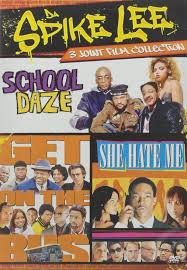Spike Lee: A Trailblazer in Film and Activism

Introduction
Spike Lee, one of the most influential filmmakers of our time, has made an indelible mark on the film industry and cultural conversations. His work not only entertains but also provokes thought about race, identity, and social justice, making him a pivotal figure in contemporary cinema. As we observe the ongoing dialogues around systemic racism and cultural representation, Lee’s contributions remain profoundly relevant and significant.
Life and Career
Born on March 20, 1957, in Atlanta, Georgia, Shelton Jackson Lee, known as Spike, was raised in a family of artists. He earned a degree from Morehouse College and later received a master’s degree in film from NYU. His debut feature film, She’s Gotta Have It (1986), was a groundbreaking project that captured the complexities of African American life, quickly launching him into prominence.
Lee’s films are known for their provocative themes and social commentary. Works like Do the Right Thing (1989) and Malcolm X (1992) challenged audiences to confront uncomfortable truths, addressing issues such as race relations and systemic inequality in America. With a distinctive visual style and unparalleled narrative technique, Spike Lee has redefined what it means to be a filmmaker.
Recent Projects and Activism
In recent years, Lee has continued to create thought-provoking work. His film BlacKkKlansman (2018), which won an Academy Award for Best Adapted Screenplay, reflects on racial tensions and was released against a backdrop of the contemporary resurgence of white supremacy in the United States. Additionally, his documentary film, David Byrne’s American Utopia (2020), captures a live musical performance while incorporating elements of social activism.
Beyond his films, Lee’s voice has been prominent in discussions surrounding social justice. He has utilized his platform to advocate for racial equality and has supported various movements, emphasizing the need for change in a nation grappling with its own identity.
Conclusion
Spike Lee remains a vital figure in both filmmaking and activism. As he continues to explore and critique societal issues through his work, his films inspire both current and future generations to engage in meaningful conversations about race, culture, and justice. With upcoming projects on the horizon, fans and critics alike eagerly anticipate how this master storyteller will once again challenge the status quo and contribute to the ongoing dialogue in America and beyond.








